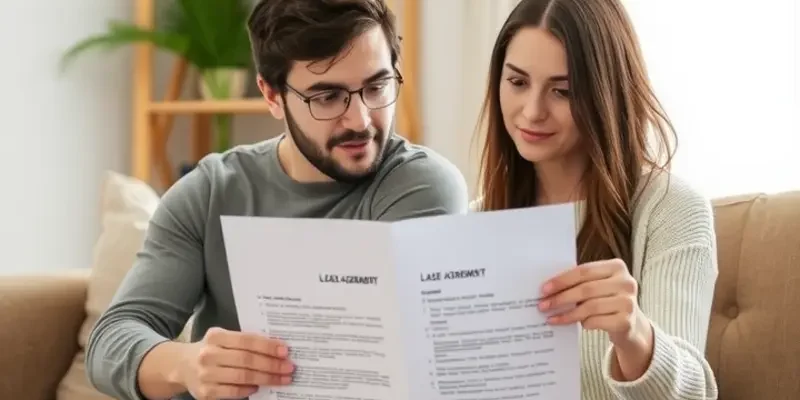Renting a home is an exciting step for young professionals, students, couples, and families. However, while moving into a new space can feel liberating, it’s essential to understand your rights regarding privacy as a tenant. You deserve to feel secure in your rented home without unwarranted intrusions. Knowing the law not only empowers you but also helps prevent potential disputes with landlords. While every state has different regulations concerning tenant privacy, some fundamental rights are universally recognized across the country. This article aims to demystify these protections, providing essential insights and practical advice as you navigate your renting journey. Whether you are entering your first lease or seeking clarity about your current agreement, this guide will equip you with the knowledge you need to advocate for your privacy as a tenant.
Understanding Your Rights to Privacy as a Tenant

As a tenant, understanding your privacy rights is essential to feel secure in your rented space. This chapter explores key areas where renters are legally entitled to privacy and how landlords must respect these boundaries.
Landlord entry is a fundamental area where privacy rights are frequently tested. In the U.S., landlords must provide proper notice before entering a tenant’s residence. Typically, this means giving at least 24 hours’ notice unless there is an emergency, such as a fire or a significant water leak. Emergencies exempt the need for prior notice because immediate entry is necessary to protect the property and residents.
Another critical right is the clear definition of when a landlord can enter to show the property to potential tenants. This is common as leases come to an end. Landlords should inform tenants in advance of any showings, ideally following the 24-hour notice practice. A clear schedule helps tenants maintain their privacy while allowing landlords to perform their duties. Commonly, such agreements are detailed in the lease, and it’s essential for renters to have these discussions early to avoid misunderstandings.
Tenants’ privacy extends beyond physical space to personal data. Landlords collect personal data ranging from Social Security numbers to bank information. This data must be protected against unauthorized access or breaches. Renters should inquire about how their personal information will be stored and request landlord confirmation that their data will not be shared without consent. Awareness of data protection can mitigate risks associated with identity theft and unauthorized data sharing.
Renters can confidently assert their rights by staying informed and utilizing practical steps. For instance, tenants have the right to install privacy-enhancing devices like curtains and locks within their rented spaces, provided they do not damage property or permanently alter the structure. These minor upgrades can significantly enhance a tenant’s sense of security and privacy.
Moreover, periodic inspections by landlords must respect privacy rules. Often outlined in a lease, regular inspections should also adhere to prior notice protocols. If these terms aren’t clear, it is advisable for renters to address them before signing the lease. An understanding of how inspections should be conducted will prevent unexpected disruptions.
Finally, tenants struggling to assert their privacy rights can seek assistance by contacting local tenant advocacy groups or legal aid organizations. Legal resources and advice can help renters navigate complex situations that may arise. Proactivity is key, and knowing where to seek help makes it easier for renters to safeguard their privacy effectively.
For more information on maintaining a safe and organized living space, consider the insights provided in this article on apartment organization using baskets, which can complement your approach to creating a secure, efficient environment.
Protecting privacy as a tenant involves knowing your rights and taking actions that preserve the sanctity of your living space. By fostering a clear understanding of legal protocols and practical strategies, renters can ensure their privacy is respected and maintained.
Taking Action: What to Do When Your Privacy is Violated

When you discover that your privacy has been violated, it’s crucial to take immediate and thoughtful actions. The first step is to document the incident thoroughly. Take detailed notes on what happened, where, and when. Include any people involved or affected by the breach. If possible, gather evidence like photographs, emails, text messages, or recorded conversations that support your account. This documentation will be invaluable if the situation escalates.
Next, communicate directly with your landlord. It’s useful to approach this interaction with a calm and professional demeanor. Write a formal email or letter outlining your concern; be specific about the event and attach any compiled evidence. Request a timely and written response. A paper trail is essential if further action is necessary.
If this approach fails or the response is unsatisfactory, you may need to understand the complaint process through local housing authorities. Each city or county often has a housing department responsible for handling landlord-tenant disputes. Provide them with your documentation and detail your attempts to resolve the issue. They can offer mediation or investigate the infringement of your rights.
Knowing when to consult a legal professional is also crucial. Seek legal advice if your privacy violation continues or escalates. An attorney specializing in tenant rights can provide guidance based on the specific state and local laws, which can vary widely.
If significant progress isn’t made, you may need to escalate the matter by filing an official complaint with local housing authorities. These authorities can exert pressure on landlords to ensure compliance with privacy laws. It’s important to remember that these processes can take time and may require persistence.
Lastly, consider connecting with local tenants’ rights organizations. These groups can offer additional advice and may even provide resources like legal assistance or advocacy. They can be especially helpful if you’re considering action that involves your community or requires a stronger collective voice.
In navigating this journey, balance patience with assertiveness. Protecting your space is essential. If you’re interested in learning more about maintaining a safe and organized environment, you might want to explore this guide on apartment organization, which can help reaffirm your sense of privacy and comfort at home.
Final words
Navigating the world of renting can indeed be overwhelming but understanding your privacy rights can significantly enhance your confidence and security as a tenant. Knowing that you have the right to a peaceful dwelling without disruptions is not just an advantage; it’s essential to your overall living experience. From knowing how and when your landlord can enter your space to understanding what actions to take if those rights are violated, being well-informed will serve you well. Remember, you have the power to defend your privacy as a renter. Make sure to leverage the resources available to you, and don’t hesitate to ask for help when necessary.









